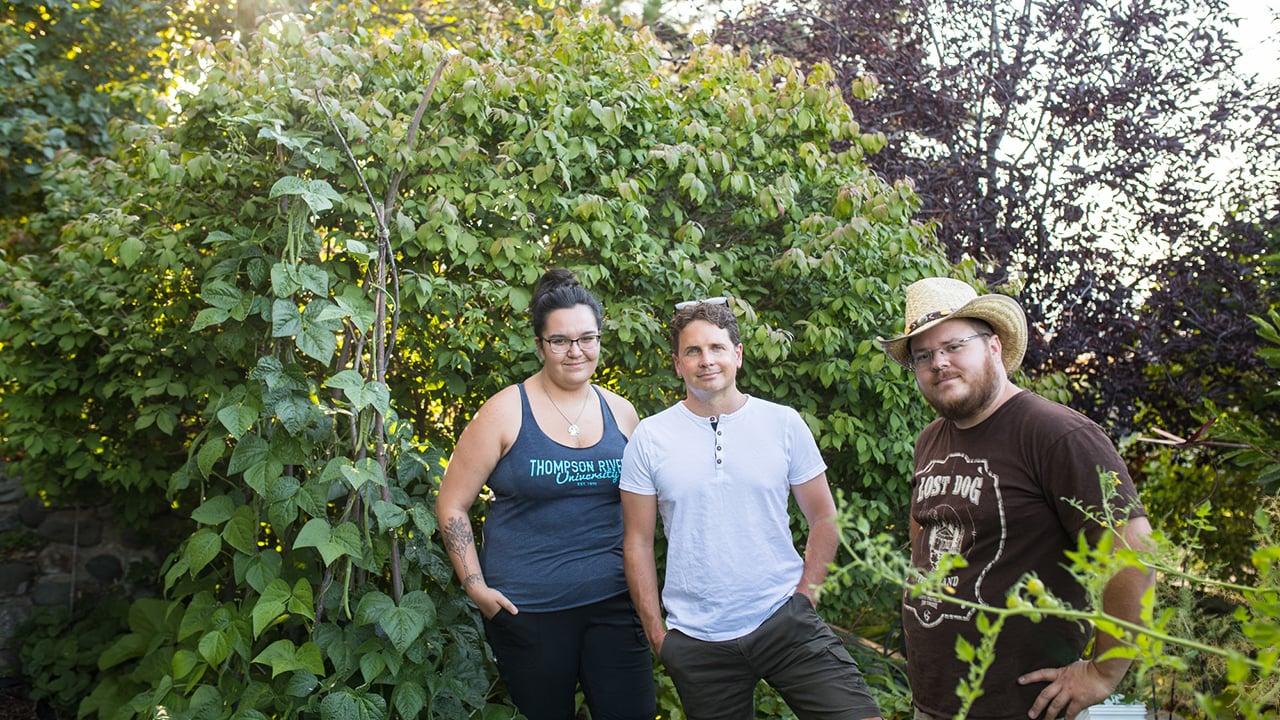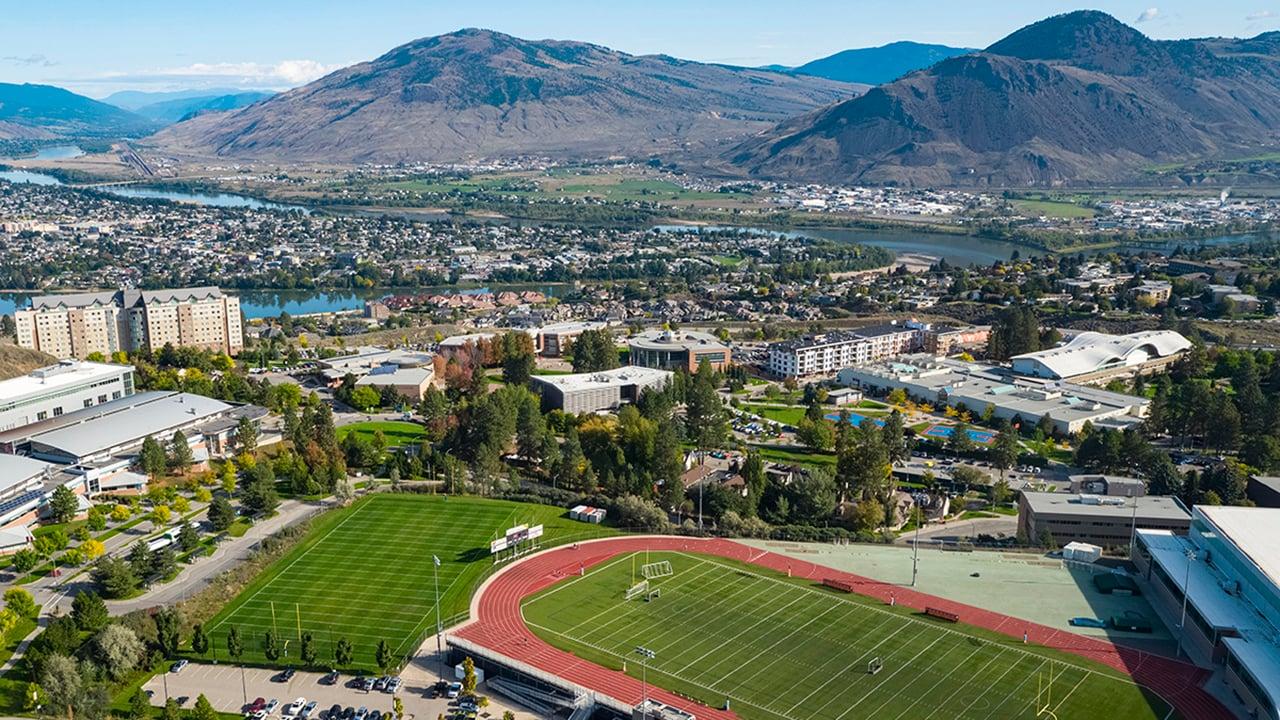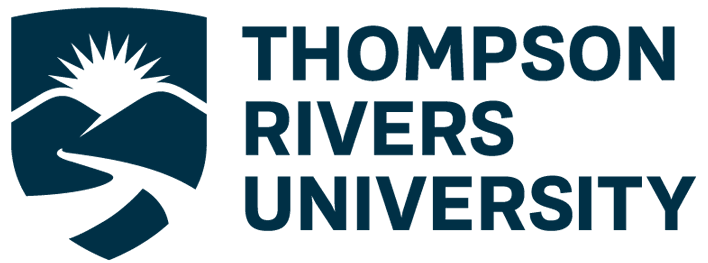Undertaking game-changing research is like planting a seed: having the perfect environment contributes to success. Students looking to make a difference through undergraduate and graduate research projects are finding that environment at Thompson Rivers University (TRU).
One of Canada’s Top 50 research universities, TRU is a thriving research hub with a broad spectrum of services and facilities. Its expert faculty generate groundbreaking research projects across nine diverse graduate programs.
“TRU is the ultimate ‘big salmon in a small stream’ scenario for potential undergraduate and graduate researchers,” says Courtney Mason, a professor and Canada Research Chair in rural livelihoods and sustainable communities at TRU. “Collaborations between trades, practical programming and innovative research opportunities exist across our campus in ways that are not common at more traditional research universities.”

Mason and his students are focused on research involving conservation, food security and social-justice issues for marginalized communities, including a recent collaboration with TRU’s horticulture program that paired remote Indigenous communities with horticulture students. The project supported local food programs through the development of community gardens and affordable greenhouse technology. “While community members have so much land-based knowledge to foster a rich co-learning experience for the horticulture students,” he says, “this is a case where students have unique skill sets to offer, which contribute to capacity-building at the community level.”
Researchers at TRU are afforded a multitude of opportunities for those types of invaluable collaborative, co-operative and consultative projects. “There’s tremendous opportunity for students to take interdisciplinary approaches to research rather than be siloed within their specific discipline,” says Joel Wood, an associate professor and the program co-ordinator for TRU’s master of environmental economics and management, and master of science in environmental economics and management programs.
Wood and his student teams focus largely on environmental sustainability and policy. “[We’re] evaluating the benefits and costs of environmental policies, and looking at trends and relationships in economic and environmental variables,” he explains. But “sustainability” can take many forms, and Wood cites a recent master’s research project—investigating the relationship between rent increases and homelessness—as particularly significant in this regard. “The student examined data from the United States and found that, in a hypothetical scenario, a $100 increase in monthly rent leads to an additional 370 people experiencing homelessness,” says Wood. “Given the large increases in rent experienced across Canada recently, research on this topic is incredibly important.”
Florriann Fehr, an associate professor in TRU’s school of nursing, is conducting research into the use of medical cannabis in addiction recovery, and for neurodiverse and medically diverse children. She notes the importance of TRU’s mutually beneficial research environment for both students and faculty. “I’ve been lucky enough to have my students work with me on my community-research projects that investigate ways to advocate for people with substance-use disorders and examine the challenges of using medical cannabis as a harm-reduction strategy,” she says.
Through research conducted at TRU, one of Fehr’s students co-authored a peer-reviewed paper on the barriers to access cannabidiol as a treatment option for children with neuro-diverse disabilities, while another student explored bullying dynamics in emergency departments in B.C. “We’re currently in the final stages of that research and have already presented the model at a provincial level,” she says.
Regardless of a student’s field of study, Mason believes TRU’s regionally important but global-in-reach programs are one of its greatest assets as a research destination. “I think it’s an ideal place for young researchers to grow, shape their careers and contribute to meaningful change,” he says.
For more information on the exciting research taking place at TRU across its nine graduate programs, visit tru.ca.

